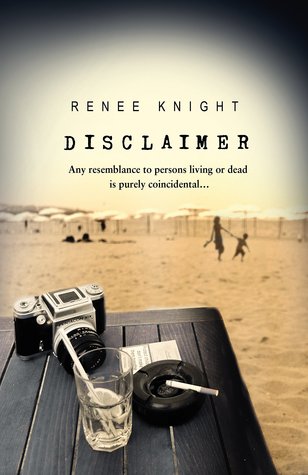The magnificent Ashley S. is back with a beautifully written review. I wish that instead of hiding in a cabin in the woods of [redacted, ha, almost had you going there, Agent Hawthorne!], I could sit down for a spell and write a review of the review that Ashley has written. I'll summarize my thoughts as follows: brilliant. If we're lucky, she might just become a regular contributor here at Spoilers.
Oh, and reader. If a tall man with blonde hair and very white teeth and a federal badge asks you if you read this blog, tell him yes; and if he asks you where I am, laugh. Laugh, and then buy him a mountain dew, because he is having a very hard week.
-A
Chloe has big dreams, way bigger than her small Indiana town can hold, and with her summer winding down and the promise of college not so far away, she can finally taste it.
But roots grow and Chloe is forced to stay in the town she hates the most. Some roots are strangled and twisted (her depressed mother, her runaway father) and some are gorgeous (her new boyfriend Ethan). Either way, no matter which root you look at, this isn’t what Chloe wants, she wants out.
Or she wants Ethan’s older brother Oliver.
Maybe she wants both?
Oh, and there’s the whole business of a murder or self defense that has landed one brother in the hospital and one brother dead. No big deal.
Dangerous Boys...
is another amazing, twisted, page turning thriller from Abigail Haas. Abigail Haas has written my most recommended book and favorite YA book I read last year, Dangerous Girls, and I am so, so excited I finally read Dangerous Boys.
Sometimes, I think Haas wrote this book just for me. Our main character isn’t spit-shine perfect and she’s honorable and loyal even when her heart tugs elsewhere. She changes, dangerously, and because Haas is so freaking flawless, it’s such a wonderful and juicy transition to watch. There’s also the yin and yang of the characters we encounter, the blunt and terrible ways of this small town, and the mystery itself that we’re thrown into to keep you invested and turning pages.
These two brothers are completely opposite from each other. Little Ethan sweeps Chloe off her feet by begging her for just one date before she leaves for college. He’s not the reason she stays, but he’s definitely a great support and a kind, sweet boy.
But Chloe needs more than that even if she doesn’t realize it.
Enter Oliver. Oliver is a boy of my own literary dreams. He’s straight out of a Salinger novel, a misplaced member of the Glass family who has everything going for him (looks, well educated, big words abounding!) and has found himself in Indiana among a lovely, boring family. He’s twisted, problematic, and brings out something in Chloe that excited me even though it maybe shouldn't have? That’s the thing about Haas, she makes you feel powerful, like you’re sitting in front of a burning building full of all your ex-lovers while you smoke a cigarette, covered in blood [I could not love any line of any book review more than I love this. I want to frame it. -A].
The small town is full of corrupt cops and is a perfect depressing backdrop for poor Chloe. It works to make you want her to get out, no matter how sweet Ethan is. There’s your usual small town folks that stick around, the seclusion, the total boredom and familiarity of it all. She has a lot of responsibility in this place, too, with her mother who can’t even take care of herself. It really helps to bring out what’s inside Chloe.
Dangerous Boys was full of intrigue, kept me guessing, and of course, took me by excited surprise by the end. Just like Dangerous Girls, I closed the book hollering and cheering and jumping off buildings shouting, “YAAAAAASSS QUEEN!!!”
Spoiler time!
Whew, where do I even begin?
For most of the book, we know that something has happened and there is definitely a huge fire and that one of the brothers is dead and one of them is in the hospital. We also come to find out that Chloe is responsible for the decision to have one brother dead and one alive. She had to kill the one she didn’t want anymore. Run away and get the life away with Oliver, who is definitely a murderer and has now turned Chloe into one, or be loyal to Ethan?
The fun part is not in the choosing (she chooses Oliver so she stabs Ethan, then completely regrets it and goes down to find Oliver in a half built home that Ethan and his father have been working on, and murders him, saving Ethan in the process), it is how it unfolds.
In chunks from the past and the present, we find out why she did what she did and how people are handling the news. That's where things get fascinating. She’s bluffing to the cops, [stressful, but rewarding! -A] but Oliver and Ethan’s mom sticks to the totally made up story because she always knew Oliver was psycho. Chloe somehow gets to Ethan first and explains herself, very misty eyed and ‘forgive me please, I love you’ so he keeps the story straight to the cops.
Then, then, then, she leaves, citing that she chooses NEITHER OF THOSE DUDES.
YAAASSSSSSSS QUEEEEEEEN!!!!!
Have fun, Chloe, but please no more murdering, I want you to succeed.
Rating: Magnificent
Possible ratings: Magnificent, Divine, Satisfactory, Tiresome, Lamentable, Execrable. This is a blog about words, what rating system did you expect?

